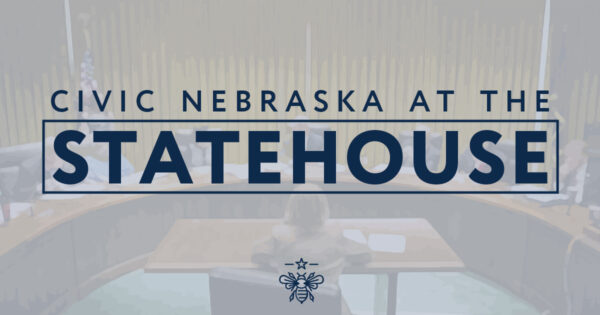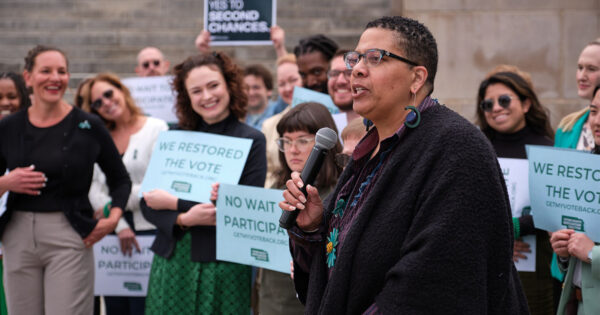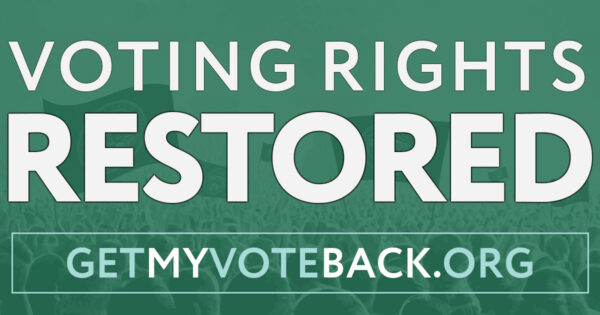A new Civic Nebraska report concludes that more Nebraska counties should consider adopting vote-by-mail systems to drive higher turnout, and recommends the Nebraska Legislature also make it easier for the state’s larger counties to move to vote-by-mail models.
The recommendations are included in our Aug. 8 report that detailed issues as well as successes during the state’s May 15 primary election. One of the issues was lower than expected turnout — just 24.3 eligible Nebraskans cast ballots in the primary.

“Perhaps the most frustrating issue for both election officials and advocacy groups is when people don’t turn out for elections,” Civic Nebraska Director of Voting Rights John Cartier said. “With three-fourths of Nebraska’s voters not participating, perhaps … the current Tuesday-centered voter model is not very conducive to voting, with people now working multiple jobs and with lifestyles changing.”
Vote-by-mail removes barriers built upon on having to be present at a proscribed time and place in order to vote. Also known as “Vote at Home,” vote-by-mail places ballots in the hands of voters several weeks before Election Day. Rather than going to a polling place, registered voters fill out ballots, place them in a special envelope, sign affidavits on the back of a mailing envelope, then mail the ballot back.
Three states – Oregon, Washington, and Colorado – have begun to use vote-by-mail statewide, while twenty-two states including Nebraska allow counties to apply to conduct all-mail elections. Garden County in western Nebraska was the only county during the statewide primary to take advantage of the option. When ballots were counted, turnout in Garden County was 59 percent, more than double the rest of the state.
“There is a silver lining from the success in Garden County’s all vote-by-mail pilot program for the primary. Garden County demonstrated what has been shown before in special elections conducted exclusively by mail: All-mail elections significantly increase voter turnout,” Cartier said.
 Legislative action would be required to expand vote-by-mail into more Nebraska counties. Currently, only those with fewer than 10,000 people can apply to the Secretary of State’s Office to implement vote-by-mail. In the new report, Civic Nebraska urged state legislators to amend this statute to allow more populous counties to apply to take advantage of the process.
Legislative action would be required to expand vote-by-mail into more Nebraska counties. Currently, only those with fewer than 10,000 people can apply to the Secretary of State’s Office to implement vote-by-mail. In the new report, Civic Nebraska urged state legislators to amend this statute to allow more populous counties to apply to take advantage of the process.
Civic Nebraska’s report also cites a 2017 Secretary of State’s Office task force on election systems that refers to an all-mail voting model “the best long-term, county-friendly, and least-expensive choice for Nebraska.”
That task force also said such a system would eliminate the cost of recruiting, training and paying more than 8,000 poll workers statewide, reduce the need to find suitable Americans with Disabilities Act-compliant polling sites, and would allow Nebraskans to focus on a single, simple voting system instead of the confusion between early voting, by-mail voting, and in-person voting on Election Day.
While noting that the primary election generally was conducted without major problems – Civic Nebraska gave high marks for helpful and knowledgeable staff; security of its election systems; and access for voters with disabilities – the report also highlighted a number of other issues, including:
- Nebraska’s complex primary ballot system led to several voters receiving incorrect or partial ballots. Also, some poll workers asked voters what ballot they preferred, despite voters’ party affiliations. Civic Nebraska recommended uniform training on primary ballot distribution and increased voter education.
- Inconsistent enforcement of electioneering laws. This has contributed to a climate where campaigns and ballot collectors are less likely to fear their use of campaign signs around polling places violates Nebraska law. Civic Nebraska recommended renewed focus on electioneering laws, including increased enforcement and perhaps enhanced penalties.
- Voter complaints claiming their party affiliations changed without their knowledge or consent. Most of these voters had simply forgotten that they signed the paperwork authorizing the change. Outside of usual human error, it does not appear there were any defects in election software.
“It is important to note that the 2018 Nebraska Primary Elections were overwhelmingly well run, efficient and fair,” Cartier said. “However, there is always room for improvement and modernization.”
See the full Civic Nebraska Primary Election Observation Report here. For more information about becoming a voting rights advocate, click here.





Best would be mail ballot to every registered voter. Bet the rate I’d return would be high among previously disenfranchised voters, the elderly, the disabled, the overworked, and so on.